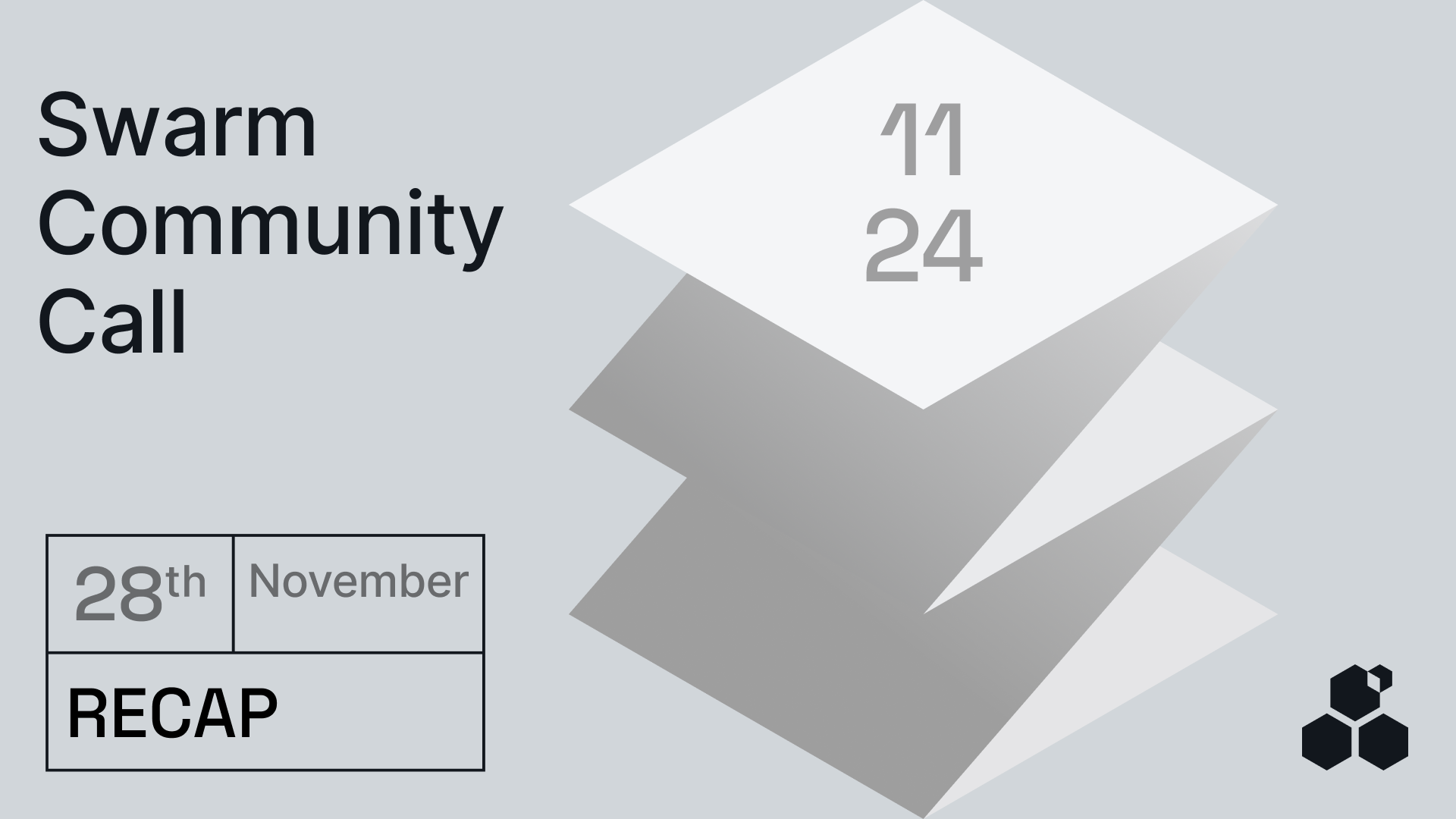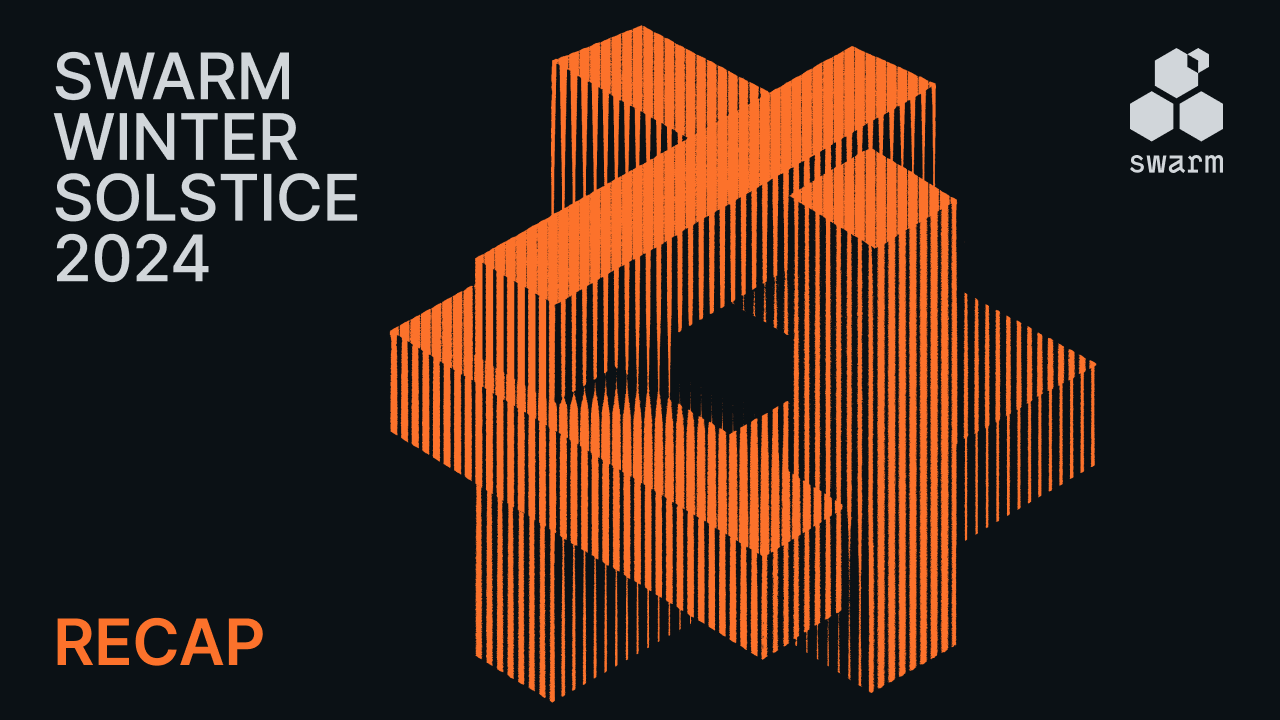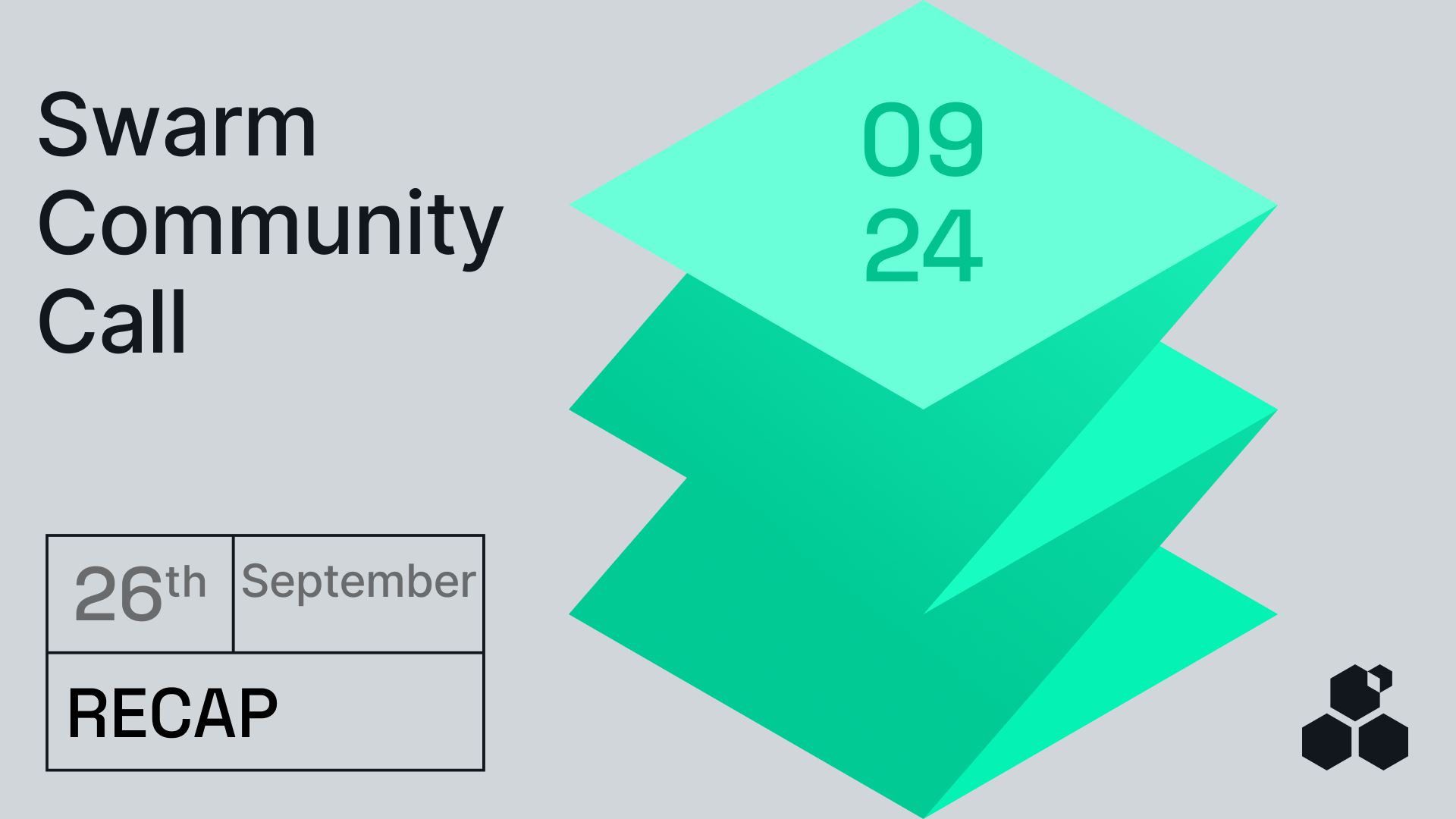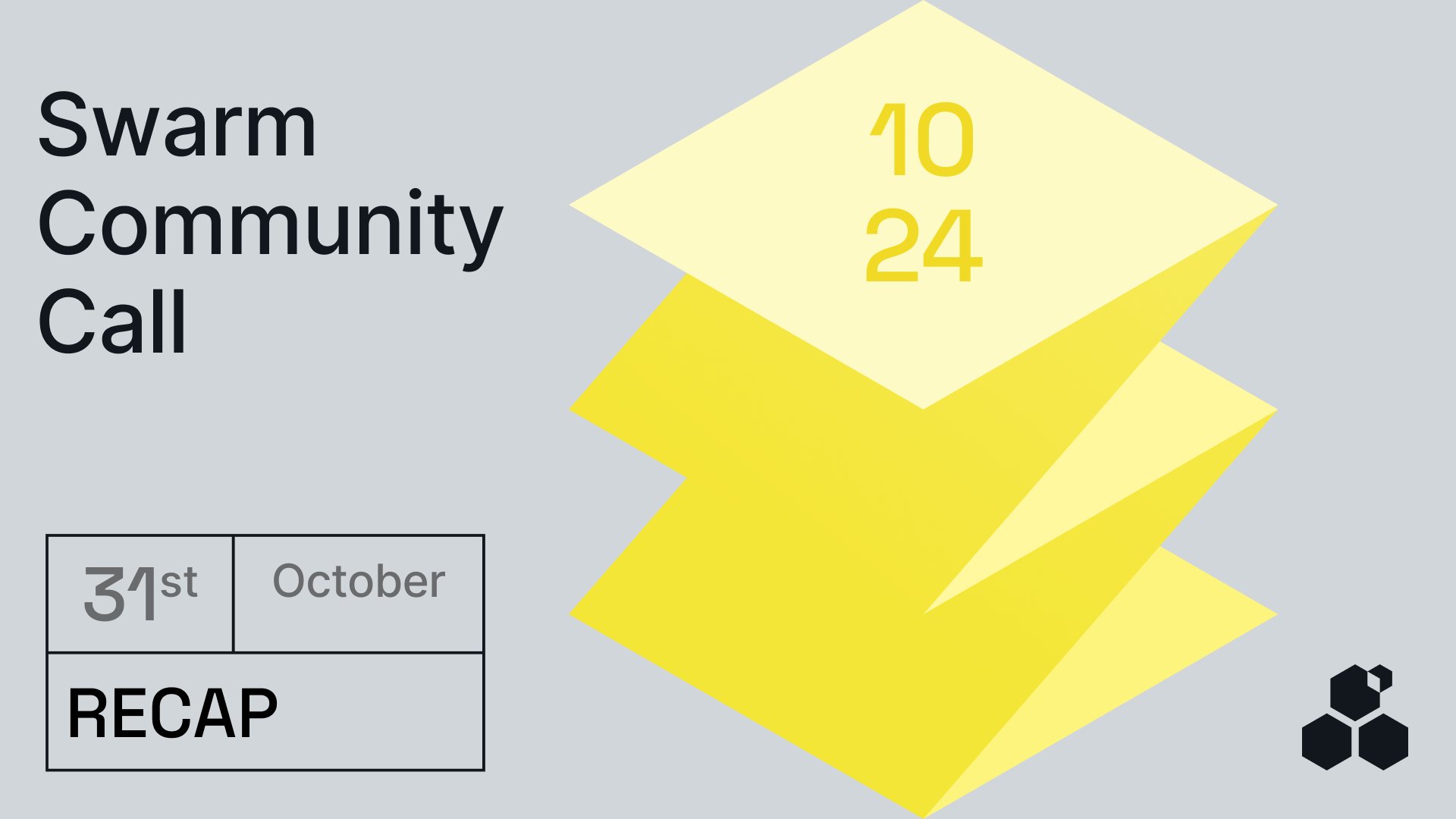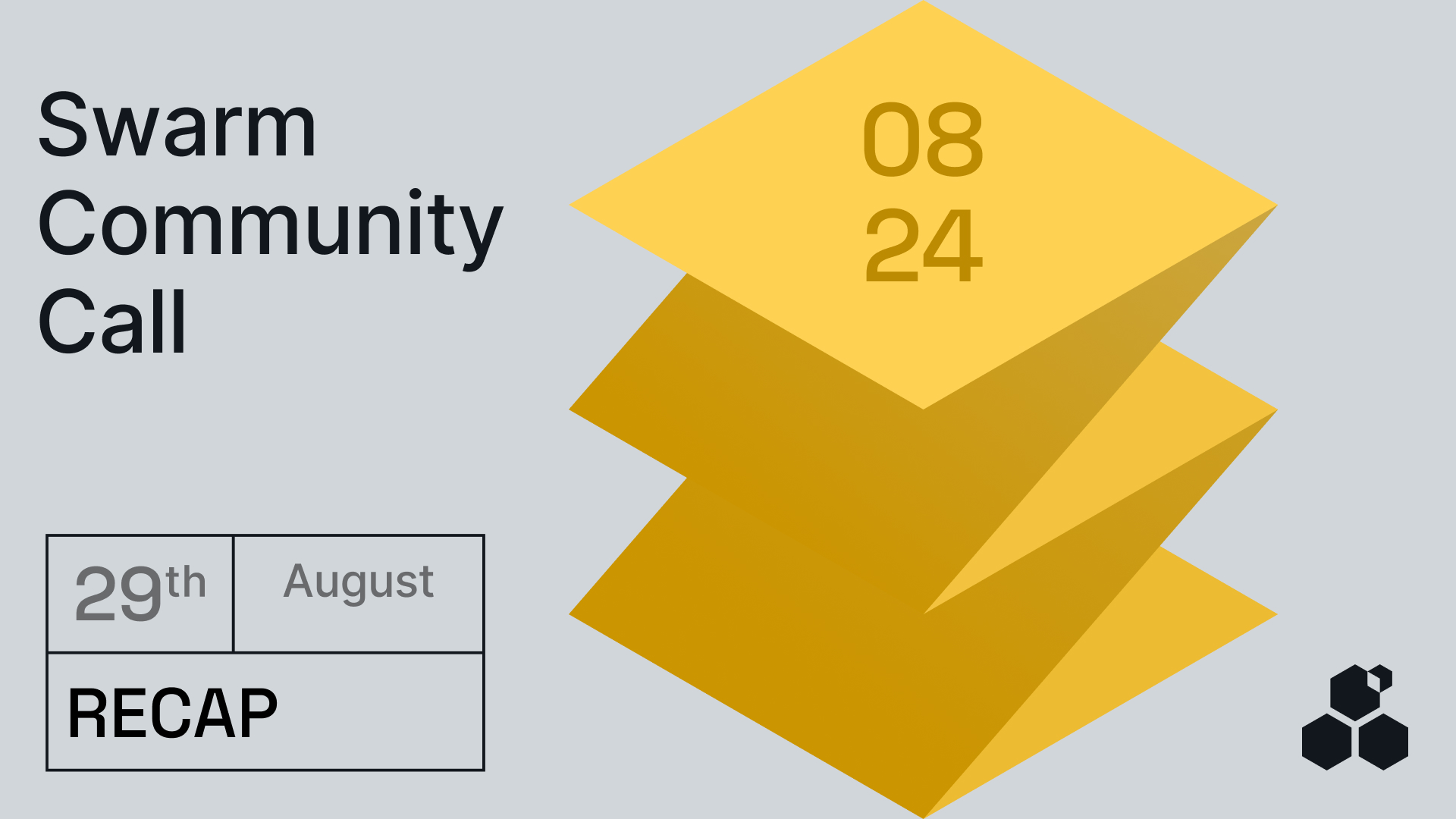In November, the Swarm Community Call brought exciting updates from across the project teams. The key highlights from the Call are presented below.
Bee release 2.3.0: Doubling the reserve size and GSOC updates
Bee Product Owner Niki Papadatou opened the November session by discussing the upcoming release of Bee 2.3.0, set for 4 December. This release’s major feature is the introduction of SWIP-21: Reserve size doubling. By doubling their reserve, node operators will increase their chances of winning in the ‘Schelling game’, enhancing both their participation and rewards.
The release also includes updates to GSOC (Graffiti Single Owner Chunks), supporting multiple users contributing to single-owner chunks, which could foster a fresh wave of collaborative applications on Swarm. GSOC implementation opens up the road for dynamic content on Swarm, allowing collaboration between several users! GSOC will enable the construction of applications such as multi-user forums, social media sites, chat applications, and much more.
This release is already available on the testnet, and initial tests have shown promising results.
Enhanced price oracle and multi-chain integration
Research Track’s Callum Toner shared progress on Swarm’s efforts towards decentralisation, mentioning that the upcoming release also features an enhanced price oracle. This update aims to ensure a fairer, more responsive pricing mechanism that better reflects supply and demand for storage in the network.
Additionally, Callum highlighted the ongoing work on multi-chain capabilities, which will simplify the use of Swarm by supporting transactions across different chains, making Swarm a far more accessible and versatile tool. This feature is currently being tested, with good results coming out, so the team will likely have a release date ready to be announced at the upcoming Winter Solstice event (see below).
Updates to the Swarm documentation
Swarm docs are now more intuitive and organised thanks to the latest updates. Noah Maizels presented several enhancements, which introduced a more intuitive structure with separate concept and reference sections. He also announced the “Ask Swarm AI” feature, which functions similarly to ChatGPT, and a major improvement to search functionality through Algolia.
In Focus: New sample applications on Swarm Desktop and Datafund App
Áron Soós shared updates on new sample applications and datasets integrated with Swarm Desktop. These include a decentralised Wikipedia, an Open Street Maps viewer, and a Swarm Screenshot tool that allows users to take screenshots and publish them directly to the Swarm network.
Áron’s presentation was followed by Črt Ahlin‘s, who discussed the progress of the Datafund App, which aims to decentralise AI by making datasets and models available through Swarm. The app, now accessible via Swarm Desktop, supports the use of decentralised storage and offers users the option to pay for data using cryptocurrency. Future updates will add decentralised compute and provenance tracking, enhancing trust in data and models available on the platform.
Community Talk
Paving the way for open hardware
The Community Talk section hosted two guests: Nicola Ceornea who spoke about EthOS, and Aata from DeBoot, who shared his latest efforts on how to bring data from the blockchain and perform computing operations upon it.
As Nicola explained, EthOS is a project focused on creating open hardware, which they believe is key for future-proofing decentralised technology. EthOS is working towards a fully auditable hardware solution, DGen-1, which is a “hardware wallet on steroids” designed for decentralised applications and crypto usage.
Storage friction and decentralised accessibility
Aata shared insights on how extracting blockchain data relates to the pricing of storage based on its “distance to the chain”—essentially, the difficulty of getting data from storage into the blockchain and computing upon it. The closer the data is to the chain, the costlier it gets. This concept highlights how reducing friction in decentralised storage could significantly impact its utility and costs.
Swarm Winter Solstice Event
Instead of the usual monthly Swarm Community Call, Swarm Foundation will host its traditional Winter Solstice Event on 21 December, 14.00 CET. The event will highlight key achievements in core development and ecosystem growth over the past six months while also outlining upcoming focus areas and priorities for the year ahead, fostering an engaging dialogue about future advancements.
Discussions about Swarm can be found on Reddit.
All tech support and other channels have moved to Discord!
Please feel free to reach out via info@ethswarm.org
Join the newsletter! .
